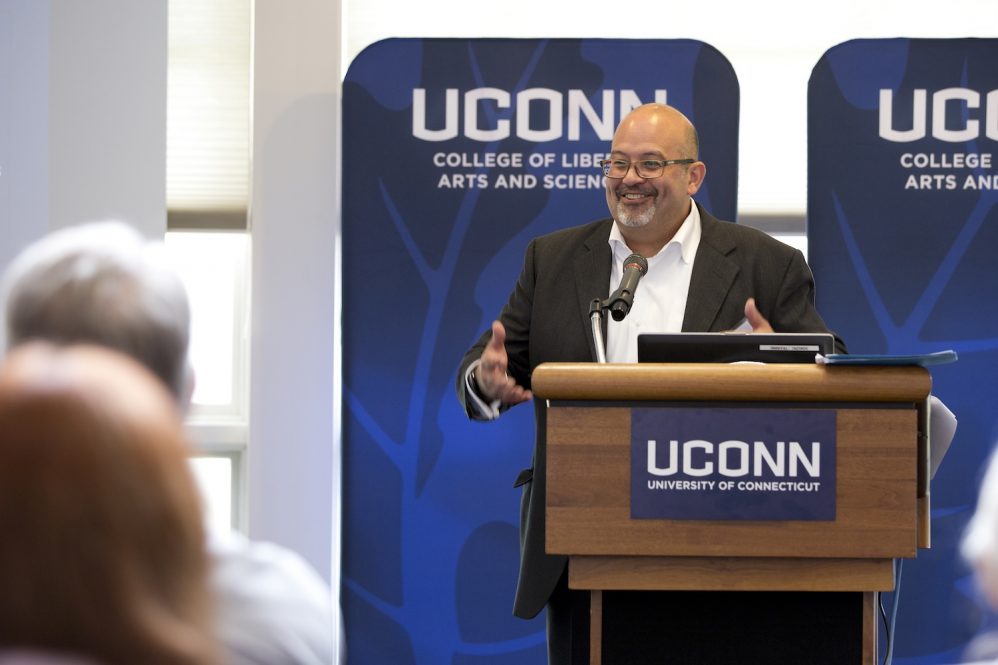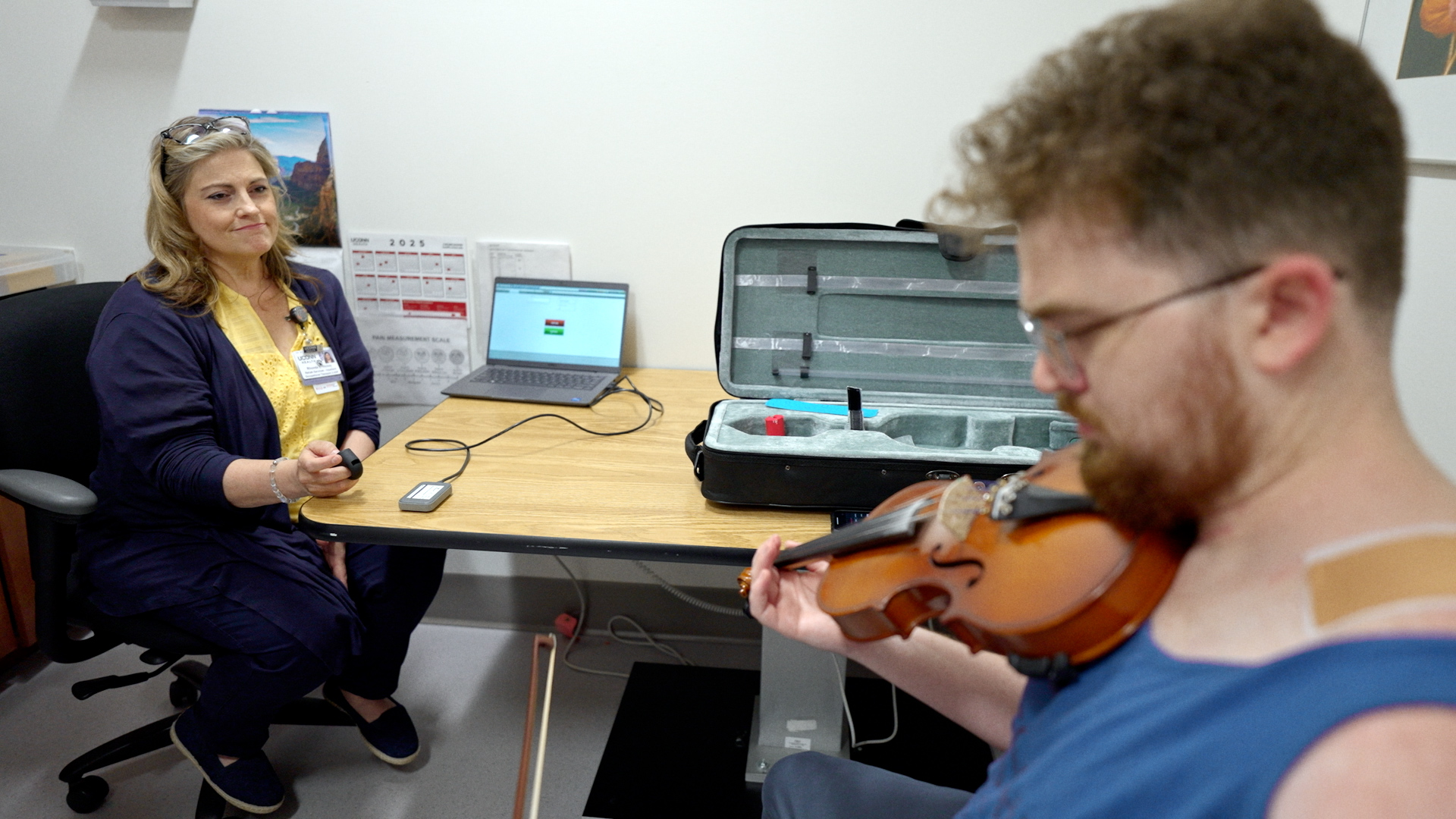Why did you want to become the director of El Instituto? What drives your passion for this work?
My journey to becoming director of El Instituto is rooted in a deep commitment to social justice and a fascination with the rich tapestry of Latino experiences. Growing up, I witnessed firsthand the challenges and triumphs of Latino communities, and I was always drawn to understanding the complex social, political, and cultural forces that shape their lives.
As I progressed in my academic career, I became increasingly aware of the need for more nuanced and comprehensive research on Latino issues. I saw a real opportunity to contribute to this field and to make a difference in the lives of students and communities. Leading El Instituto allows me to combine my passion for research and teaching with my commitment to social justice. It’s incredibly rewarding to work with talented faculty and students who are dedicated to advancing our understanding of Latino communities and contributing to a more just and equitable society.
How does El Instituto distinguish itself from other Latino Studies and Puerto Rican Studies programs across the United States? What makes it stand out?
El Instituto occupies a unique position in the landscape of Latino Studies in the U.S. While many universities have programs focusing on either Latino Studies or Puerto Rican Studies, we are one of only three institutions in the nation that intentionally integrates both areas of study. This allows us to explore the rich diversity of Latino experiences while also recognizing the distinct historical and cultural contributions of Puerto Ricans.
El Instituto is also deeply committed to community engagement and public scholarship. We believe that our research should not be confined to the ivory tower but should be actively used to inform public policy and address real-world problems. This commitment is reflected in our work with community partners, government agencies, and media outlets. We strive to be a resource for the state of Connecticut and beyond, providing expertise and insights on critical issues facing Latino communities.
What are the research interests of the faculty within El Instituto? What are some of the key themes and areas of expertise?
Our faculty represent a diverse range of disciplines and research interests, all connected by a shared commitment to the study of Latino communities. Some of our faculty focus on historical research, exploring topics such as the history of Puerto Rican migration to the U.S., the development of Latino communities in Connecticut, and the role of Latinos in social and political movements.
Others specialize in sociological and anthropological research, examining issues such as cultural identity, language use, and social inequality. We also have faculty who conduct research on political representation, immigration policy, and economic development in Latino communities. This interdisciplinary approach allows us to provide students with a comprehensive understanding of the complex factors that shape the lives of Latinos in the U.S. and Latin America.
Are there misconceptions about Latino Studies? How do you address these misunderstandings?
One of the most common misconceptions is that Latino Studies is only relevant to students of Latino heritage. This couldn’t be further from the truth. Latino Studies is an interdisciplinary field that offers valuable insights for students from all backgrounds. It provides a critical lens for understanding history, culture, politics, and society, and it challenges students to think critically about their own assumptions and biases.
Another misconception is that Latino Studies is primarily focused on identity politics. While issues of identity are certainly important, Latino Studies encompasses a much broader range of topics, including immigration, social movements, economic development, and political representation. By addressing these misconceptions and highlighting the breadth and depth of Latino Studies, we aim to attract students from diverse disciplines and backgrounds.
What can students who are not majoring in Latino Studies take away from courses offered by El Instituto?
In today’s increasingly interconnected world, it is essential for students in all fields to develop a deep understanding of diverse cultures and perspectives. Latino Studies provides students with the knowledge and skills to navigate a multicultural society and to engage with diverse communities. This is invaluable for students pursuing careers in fields such as education, healthcare, social work, law, business, and government.
Latino Studies also encourages critical thinking, problem-solving, and communication skills, which are highly valued by employers in all sectors. By taking courses in Latino Studies, students can gain a competitive edge in the job market and prepare themselves for leadership roles in a diverse and globalized world.
What are some of the initiatives and plans on the horizon for El Instituto?
We are actively working to strengthen our connections with UConn’s regional campuses, creating a more integrated and collaborative network for Latino Studies across the university. This includes exploring the possibility of developing a university-wide Latino/Latin American Studies program that supports Hispanic-Serving Institutions.
We are also committed to expanding our outreach to high schools and community colleges, creating pathways for students from diverse backgrounds to pursue higher education in Latino Studies. Additionally, we are enhancing our master’s program, attracting top students from around the world and providing them with the research skills and professional development opportunities they need to succeed in their chosen fields.
What’s your favorite UConn sports team?
My son and I are season ticket holders for the women’s volleyball and basketball teams. We love the energy and excitement of their games. It’s inspiring to watch these athletes compete at such a high level.
This Q&A is part of CLAS Visionary Voices, a series highlighting the College’s new academic leaders and their innovative visions for education, research, and outreach at UConn.



